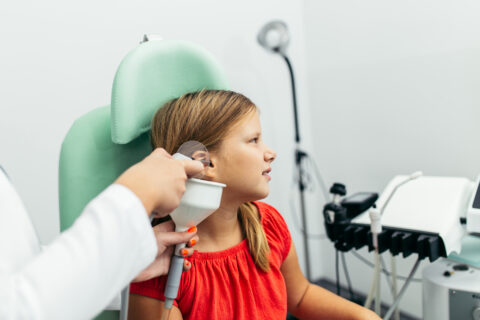Sunday Times Healthy Times
Ear Hygiene And Care
Cleaning your ears… safely
The old school saying “don’t put anything smaller than your elbow in your ears” still rings true with ear, nose and throat doctors (ENTs). “We recommend that you do not attempt cleaning inside your ear canals,” says ENT Dr Nina du Toit. “The lining of your skin and your ear’s wax production forms a natural cleansing system. Once you disturb it – often with a dry and rough earbud, you either push the wax deeper or dry out your ear canal, causing your body to produce more earwax. You can safely clean the outside of your or your child’s ear, but only as far as a finger covered in a face cloth can go. If you struggle with earwax build-up, you can insert a few drops of sweet oil into your ear canal once a week to soften the wax so it can rinse out in the bath or shower.”
Prevention of wax build-up is even more important if you wear a hearing aid. “A much smaller build-up of wax can create problems for someone wearing a hearing aid by exacerbating their hearing loss,” says audiologist Dr Natalie Buttress of NB Hearing and Balance.

Buttress recommends caring for hearing aids in the following way:
Handle with clean hands because food and oil residue can block the microphone ports that amplify sound.
Keep it away from water. If you live near the coast, regularly dry your hearing aid using a desiccant or the drying device that came with it. If you accidentally drop it in water, switch off immediately if rechargeable, or remove the batteries if not. Leave it to dry for a full 24 hours without switching on, and get it checked by your audiologist.
Remove and replace the wax filter once a month – even if there is nothing in it – to avoid having to replace the loudspeaker.
Keep the opening free of wax by regularly wiping the surface with a dry cloth or
special brush.
If this all seems too much, most audiologists will clean and service your hearing aids for you.
Prevent and treat infection
Often, when we have a cold or flu, our ears get infected. “Middle ear infections are common during or after a common cold or flu, especially in children,” says du Toit. “This is due to the infection spreading from the nose to the ears via the eustachian tube. The best way to try and avoid this is to treat the nose; keeping the nose clean with regular saline rinses and using a topical cortisone nasal spray to prevent inflammation can help.”
External or outer ear infections are more common in those who spend lots of time in water like swimmers and surfers.

“Here, we often recommend putting a mixture of rubbing alcohol and vinegar in the ears after swimming to help dry the ear,” says du Toit. “But please consult your doctor first to ensure that you have a healthy intact eardrum before putting anything into your ear.”
How much noise is too much?
Constant exposure to loud noise can cause hearing impairments. But how loud is too loud? “The recommendation is that noise above 85 decibels is dangerous to your ears, says du Toit. “If you need to raise your voice to speak to someone three feet away, the chances are that noise levels might be over 85 decibels. Another way to tell that noise is too much is if you hear ringing or humming in your ears afterwards.”
When does possible hearing loss become an issue?
Hearing loss that is noticeable to you or your family should be dealt with. “The earlier it is picked up, the better one can intervene or monitor,” says du Toit. “Start with a simple hearing test with your audiologist unless the loss is sudden or only in one ear, or there is pain, discharge or vertigo as well, in which case you must see an ENT urgently.”





